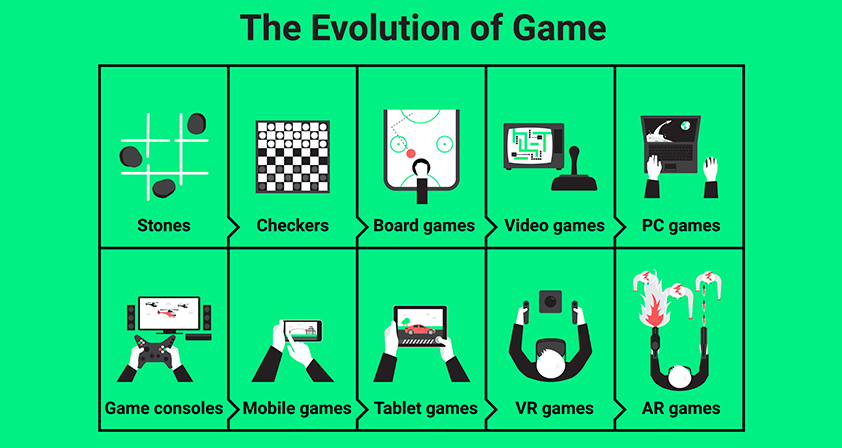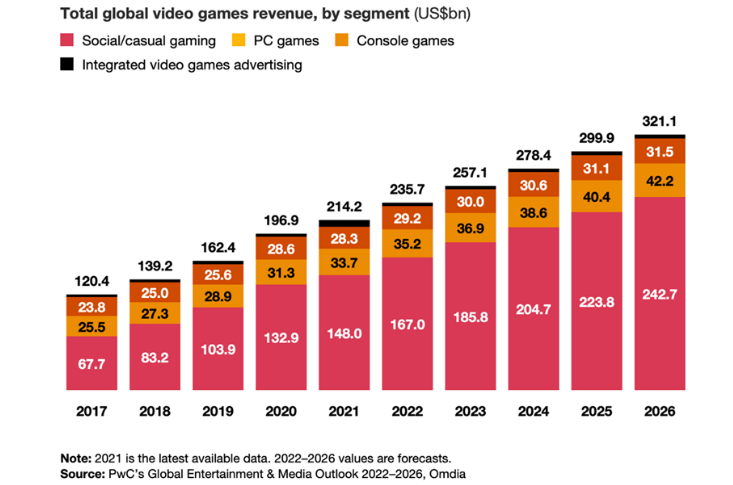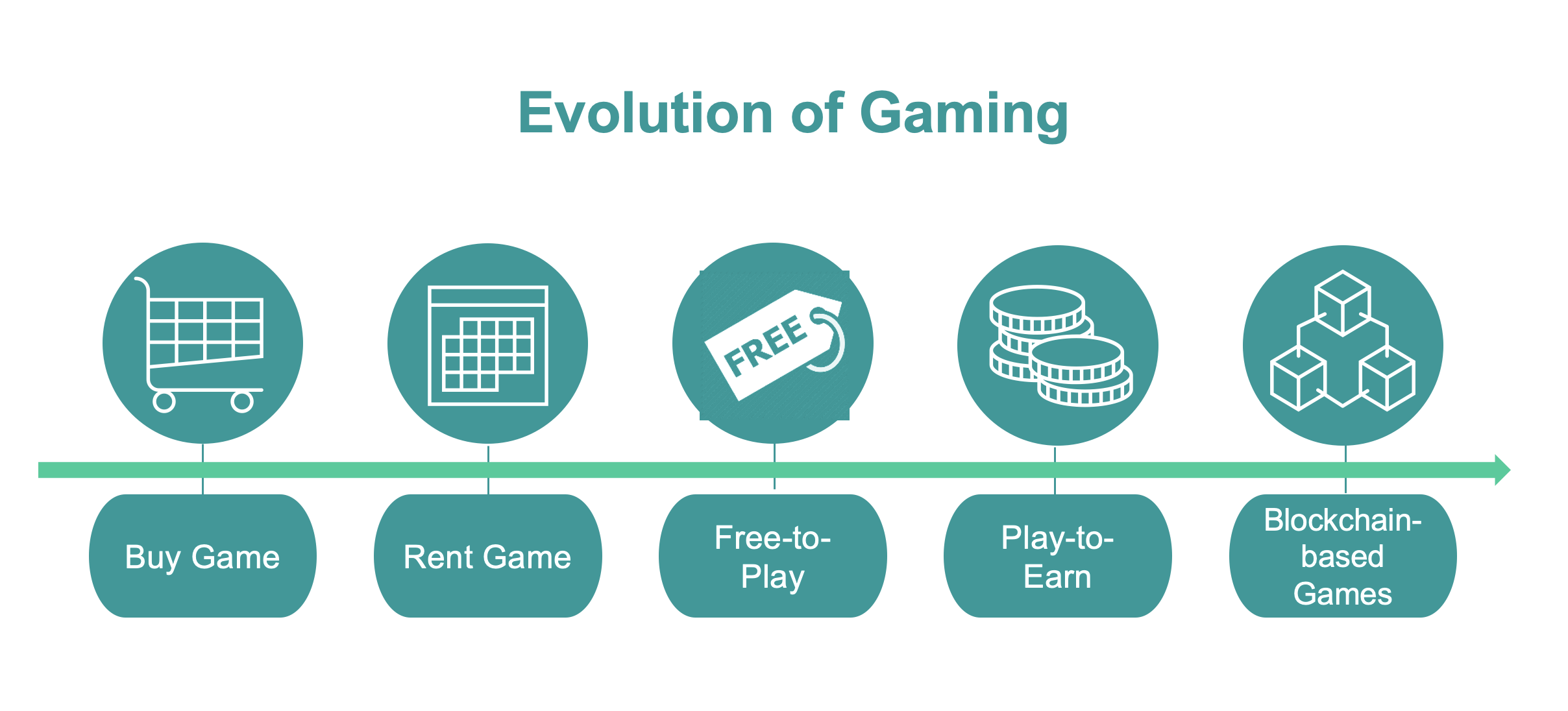The Evolution of Free Online Gaming: A Glimpse into 2025
Related Articles: The Evolution of Free Online Gaming: A Glimpse into 2025
Introduction
With great pleasure, we will explore the intriguing topic related to The Evolution of Free Online Gaming: A Glimpse into 2025. Let’s weave interesting information and offer fresh perspectives to the readers.
Table of Content
The Evolution of Free Online Gaming: A Glimpse into 2025

The digital landscape is constantly evolving, and the realm of gaming is no exception. The year 2025 promises a significant shift in how we experience and engage with online games, with the accessibility of free-to-play titles reaching unprecedented levels. This paradigm shift is driven by several factors, including advancements in technology, evolving business models, and a growing global demand for interactive entertainment.
The Rise of Free-to-Play:
Free-to-play (F2P) gaming has witnessed a meteoric rise in recent years, becoming a dominant force in the gaming industry. This shift can be attributed to several key factors:
- Accessibility: Free-to-play models eliminate the financial barrier to entry, allowing players to experience games without upfront costs. This broadens the potential audience, attracting casual and hardcore gamers alike.
- Microtransactions: F2P games often monetize through in-game purchases, offering players the option to enhance their experience with cosmetic items, virtual currency, or gameplay advantages. This model allows developers to generate revenue while maintaining accessibility.
- Mobile Gaming Boom: The proliferation of mobile devices has fueled the growth of F2P gaming. The ease of access and portability of mobile games have made them highly popular, further contributing to the popularity of this model.
The Future Landscape of Free-to-Play in 2025:
The year 2025 is expected to witness a further evolution of free-to-play gaming, characterized by:
- Expansion of Genres: While F2P has traditionally dominated mobile and casual genres, the model is expanding into more complex and immersive categories like MMORPGs, RPGs, and even AAA titles.
- Enhanced Monetization Strategies: Developers are refining microtransaction models, focusing on providing meaningful value to players through in-game purchases. This shift is driven by a focus on player satisfaction and long-term engagement.
- Technological Advancements: The integration of cloud gaming, VR/AR technology, and advanced graphics will further enhance the experience of free-to-play games, blurring the lines between free and paid offerings.
- Cross-Platform Play: The increasing prevalence of cross-platform play will allow players to interact and compete regardless of their chosen device, further expanding the reach of free-to-play games.
Benefits of Free-to-Play Gaming:
The rise of free-to-play gaming presents several benefits for both players and the gaming industry:
- Increased Accessibility: Free-to-play games open up the world of gaming to a broader audience, including those with limited financial resources or who are hesitant to invest in traditional paid games.
- Enhanced Innovation: The competitive nature of the F2P market encourages developers to innovate and create engaging gameplay experiences, pushing boundaries and exploring new frontiers in game design.
- Global Reach: The accessibility of free-to-play games transcends geographical boundaries, fostering a global community of players and encouraging cultural exchange.
- New Business Models: F2P models have revolutionized the gaming industry, creating new avenues for revenue generation and fostering a more sustainable ecosystem for developers.
Challenges and Concerns:
While free-to-play gaming offers numerous advantages, it also presents challenges and concerns:
- Potential for Exploitation: The reliance on microtransactions can lead to predatory practices, with some games employing manipulative tactics to encourage excessive spending.
- Pay-to-Win Mechanics: Some F2P games implement mechanics that give paying players a significant advantage, creating an uneven playing field and potentially undermining the competitive nature of the game.
- Addiction and Overspending: The accessibility and addictive nature of free-to-play games can lead to excessive spending and potential addiction, particularly among vulnerable demographics.
- Data Privacy and Security: The collection and use of player data in F2P games raise concerns about privacy and security, requiring developers to adopt responsible data management practices.
Addressing Concerns and Promoting Responsible Gaming:
To mitigate the potential downsides of free-to-play gaming, the industry is taking steps to promote responsible gaming practices:
- Transparency and Disclosure: Developers are increasingly transparent about the mechanics of their games, including the availability of in-game purchases and their impact on gameplay.
- Self-Regulation and Industry Standards: Industry organizations are developing guidelines and standards to address concerns about predatory practices and promote fair play in free-to-play games.
- Parental Controls and Awareness: Developers and platforms are implementing parental control features and educational resources to help parents understand and manage their children’s online gaming activities.
- Player Support and Resources: Developers are providing resources and support to players who may be struggling with addiction or overspending, offering tools and guidance to promote responsible gaming habits.
The Future of Free-to-Play Gaming:
The future of free-to-play gaming is bright, with continuous innovation and technological advancements driving the evolution of the gaming landscape. The focus on player experience, responsible monetization, and ethical practices will be crucial in shaping the future of this dynamic industry.
FAQs
1. What is the difference between free-to-play and paid games?
Free-to-play games are available to play without upfront costs, while paid games require a purchase to access the full game. Free-to-play games often monetize through in-game purchases, while paid games typically offer a complete experience without additional costs.
2. Are free-to-play games always lower quality than paid games?
Not necessarily. The quality of a game depends on the developer’s resources and dedication, regardless of its monetization model. Many free-to-play games offer high-quality graphics, engaging gameplay, and compelling storylines.
3. How do free-to-play games generate revenue?
Free-to-play games primarily generate revenue through microtransactions, allowing players to purchase in-game items such as cosmetic enhancements, virtual currency, or gameplay advantages.
4. Are free-to-play games safe for children?
The safety of free-to-play games depends on the specific game and its content. Some games may contain mature themes or in-app purchases that could be inappropriate for children. It’s important for parents to research and monitor their children’s gaming activities.
5. What are the ethical considerations surrounding free-to-play games?
Ethical considerations surrounding free-to-play games include potential predatory practices, pay-to-win mechanics, and the impact on player addiction and overspending. Developers have a responsibility to implement responsible gaming practices and ensure a fair and enjoyable experience for all players.
Tips for Enjoying Free-to-Play Games:
- Research the Game: Before diving into a free-to-play game, research its mechanics, monetization model, and player reviews to ensure it aligns with your preferences.
- Set a Budget: If you choose to make in-game purchases, set a budget and stick to it. Avoid impulsive spending and focus on purchases that enhance your enjoyment of the game.
- Take Breaks: Free-to-play games can be addictive, so take regular breaks to avoid burnout and maintain a healthy balance.
- Engage with the Community: Connect with other players in online forums or communities to share tips, strategies, and experiences.
- Be Aware of Potential Risks: Be mindful of potential risks associated with free-to-play games, such as predatory practices or addiction.
Conclusion:
The landscape of online gaming is rapidly evolving, with free-to-play models becoming increasingly prevalent. The accessibility, innovation, and global reach of F2P games offer significant benefits to both players and the gaming industry. However, it’s crucial to address potential concerns surrounding predatory practices, pay-to-win mechanics, and player addiction. By promoting responsible gaming practices, fostering transparency, and prioritizing player well-being, the future of free-to-play gaming holds immense potential for positive growth and development.








Closure
Thus, we hope this article has provided valuable insights into The Evolution of Free Online Gaming: A Glimpse into 2025. We appreciate your attention to our article. See you in our next article!